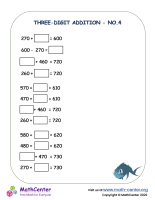

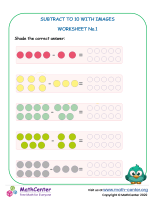
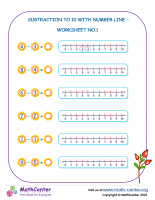
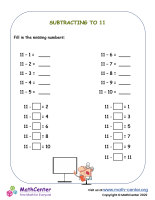
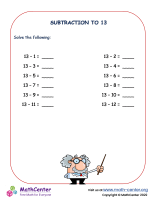
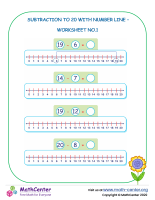
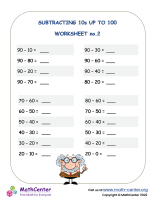
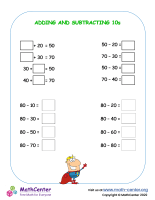 Adding and subtracting 10s - No.1" width="176" height="162" />
Adding and subtracting 10s - No.1" width="176" height="162" />
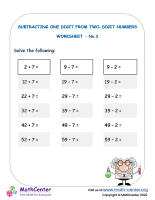
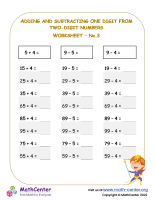
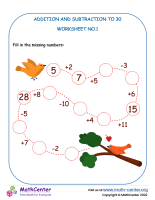
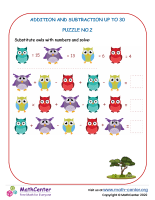
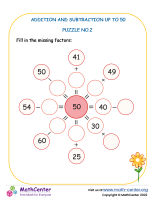
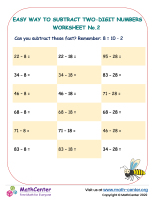 Easy way to subtract two digit numbers Worksheet No.2" width="176" height="162" />
Easy way to subtract two digit numbers Worksheet No.2" width="176" height="162" />
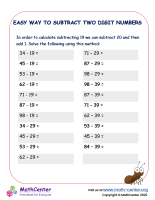 Easy way to subtract two digit numbers" width="176" height="162" />
Easy way to subtract two digit numbers" width="176" height="162" />
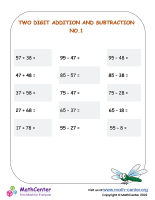
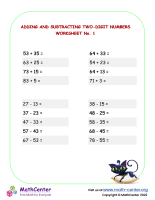 Adding and subtracting two-digit numbers No.1" width="176" height="162" />
Adding and subtracting two-digit numbers No.1" width="176" height="162" />
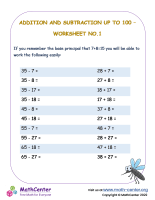
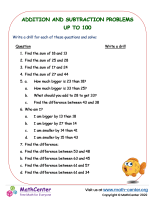
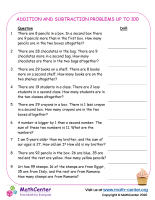
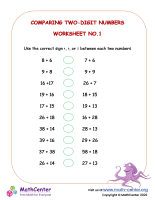
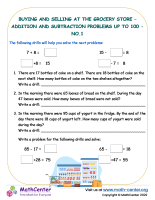
Welcome to our Subtraction Page! Here you will find a wide range of free printable subtraction sheets and resources to help your child improve their subtraction fact knowledge and column subtraction skills. We also have various subtraction word problems, puzzles, and games to print and play!
Subtraction is a process that most children learn quite naturally as soon as they start learning to count. During kindergarten and first grade, kids need to have the chance to work practically with their math. An example might be that a child has 10 sweets. They give 3 to their teddy. How many do they have left? What if they gave another to their teddy? What if their teddy had 8 sweets? How many would be left for them? Later, when children are confident subtracting practically, they can progress to number lines or counting back in their heads. When children understand this, they can learn their subtraction facts and progress to column subtraction. At 4th and 5th grade level, they start subtracting decimals. Knowing your subtraction facts is still a key skill that children need to use in real-life math - you may not always have a pencil and paper to hand to do your column subtraction, but you will always have your subtraction facts! In first-grade subtraction, children will learn subtraction facts up to 10 and later up to 20. They will also be able to use these facts to subtract tens. These basic skills will help your child understand the concept of division through subtraction. Children will also start solving simple verbal subtraction problems. In second-grade subtraction, children will learn subtraction in two-digit numbers, starting from subtracting tens through two-digit subtraction with or without regrouping and up to subtracting hundreds. They will also solve verbal problems involving these operations. In third-grade subtraction, children will learn subtraction in three-digit numbers. They will begin by subtracting hundreds and will continue by subtracting three-digit numbers with or without regrouping. More advanced students could try subtracting four-digit numbers. In fourth-grade subtraction, children will strengthen the skills learned in the previous years by practicing subtraction with four-digit numbers. In fifth-grade subtraction, children will preserve the skills learned in the previous years by practicing subtraction with ‘big’ numbers.
Copyright © Math-Center.Org LLC 2020 - 2024Copyright © to some of the works on this website belongs to Math Salamanders Limited. All rights reserved. Math Salamanders Limited asserts its moral right to be identified as the author of such works in accordance with the Copyright, Designs and Patents Act 1988. Copyright © to some of the works on this website belongs to Achiever Ltd and the Azmon Family.